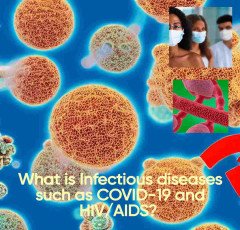
What is Diabetes management and control ?

The several techniques and tactics used to control blood sugar levels in people with diabetes are referred to as diabetes management and control.
Diabetes is a chronic disease in which the body cannot efficiently generate or use the hormone insulin, which controls blood sugar levels. Uncontrolled blood sugar levels can cause a number of health issues, such as kidney damage, heart disease, nerve damage, and other consequences.
Several essential elements are necessary for the effective management and control of diabetes, including: -
Healthy eating:
Eating well can help control blood sugar levels. A balanced diet reduced in sugar and carbohydrates is recommended.
Regular exercise:
Regular physical activity can help reduce blood sugar levels and increase insulin sensitivity.
Medication:
Insulin injections, oral drugs, and other injectable treatments are among the medications that can help control blood sugar levels in patients with diabetes.
Blood sugar monitoring:
Monitoring blood sugar levels consistently is essential for treating and controlling diabetes. A continuous glucose monitoring system, blood glucose meter, or other tools can be used for this.
Taking care of other health issues: People with diabetes are more susceptible to other issues including high blood pressure and high cholesterol. The risk of diabetes complications can be decreased by controlling these disorders.
Regular check-ups:
Monitoring blood sugar levels and general health requires regular check-ups with a healthcare professional.
Diabetes must be managed and controlled effectively using a multifaceted strategy that takes into account all facets of the disease. People with diabetes can successfully manage their illness and lower their risk of complications by maintaining a healthy lifestyle and working closely with a healthcare practitioner.
Support and education:
Support and education are crucial elements of managing and controlling diabetes. People who have diabetes need to learn how to take care of themselves, how to keep track of their blood sugar levels, and how to spot issues when they appear. People with diabetes can also benefit from support from their loved ones, close friends, and medical professionals in managing their illness and lowering their risk of complications.
Management of stress:
Because stress can raise blood sugar levels, diabetes management strategies including yoga, deep breathing exercises, and meditation can help.
Giving up smoking:
Giving up smoking is a crucial first step in treating diabetes because it can raise the risk of complications linked to the disease.
Sleep:
Maintaining healthy blood sugar levels requires getting adequate sleep. Those who have diabetes should try to sleep for 7-8 hours per night and keep a regular sleep routine.
Healthy nutrition, regular exercise, medication, blood sugar monitoring, managing other medical conditions, routine checkups, education and support, stress management, quitting smoking, and getting enough sleep are all necessary for effective diabetes management and control. People with diabetes can live healthy, active lives and lower their risk of complications by using a comprehensive strategy to managing and controlling their illness.
Medication alterations:
Diabetes is a progressive disease, therefore medication requirements may evolve with time. As their condition changes, diabetics may need to change the drugs they are taking or adjust the dosage.
Regular checkups:
Diabetics are more likely to develop eye, foot, and kidney issues. Regular physicals can aid in identifying these issues early and avoiding difficulties.
Glycemic management:
Keeping blood sugar levels under control is essential for controlling diabetes. In order to lower the risk of problems, this requires maintaining blood sugar levels within a reasonable range.
A1C testing:
A1C testing evaluates the average blood sugar levels over the previous two to three months. This test is crucial for managing diabetes and modifying treatment regimens.
Education on hypoglycemia:
Education on hypoglycemia is important since it can happen when blood sugar levels go too low. Diabetics should be informed of the symptoms and indicators of hypoglycemia. Diabetes management requires knowledge on how to treat and avoid hypoglycemia.
Support groups:
Becoming a member of a support group can give persons with diabetes emotional support and make them feel less alone. Additionally, support groups can offer tools and instruction to assist people manage their conditions.
A holistic strategy that takes into account all facets of the condition is needed for diabetes treatment and control. People with diabetes are able to successfully manage their disease and have healthy, active lives by adopting a healthy lifestyle, collaborating closely with healthcare professionals, and remaining knowledgeable about diabetes.
Foot care:
Diabetes increases the chance of developing foot problems because it can harm the nerves in the feet and restrict blood flow to them. Regular foot examinations, using supportive footwear, and avoiding injury are all examples of good foot care practices that can help prevent foot issues and lower the likelihood of consequences.
Weight management:
It's crucial to keep a healthy weight when managing diabetes. Weight gain can increase the risk of problems and make it harder to control blood sugar levels.
Alcohol use:
Consuming alcohol can raise the risk of hypoglycemia and influence blood sugar levels. To reduce the risk of complications, people with diabetes should drink alcohol in moderation and with food.
Travel:
Diabetics must make advance plans to have access to supplies, medical care, and medicine while away from home. Additionally, they need to be conscious of time zone differences and modify their medication plan accordingly.
In order to help people with diabetes maintain appropriate blood sugar levels and lower the risk of complications, diabetes management and control incorporates a variety of tactics and approaches. People with diabetes can successfully manage their illness and lead long, active lives by remaining informed, collaborating closely with healthcare professionals, and adopting a healthy lifestyle.
Mental health:
Managing diabetes can be difficult and may have an effect thereon. It's critical for diabetics to maintain their mental health and, if necessary, seek assistance.
Vaccinations:
Due to their heightened vulnerability to infections, individuals with diabetes may benefit from additional immunizations, such as the pneumococcal and flu vaccines.
Gestational diabetes:
To treat their illness, women with gestational diabetes must regularly monitor their blood sugar levels and lead a healthy lifestyle. To control their blood sugar levels, they might also need to take medication or receive insulin injections.
Technology:
A range of technology solutions, such as insulin pumps, continuous glucose monitors, and smartphone apps, are available to help people with diabetes manage their illness. These techniques can aid in bettering glycemic control and simplify and facilitate diabetes treatment.
Cultural considerations:
Cultural considerations can affect the care and control of diabetes. To obtain the best results, healthcare professionals must be aware of cultural beliefs and practices that may have an impact on diabetes management and offer care that is sympathetic to those cultures.
A variety of tactics and procedures are used in the complex process of managing and controlling diabetes to help persons with the condition maintain appropriate blood sugar levels and lower their risk of complications. People with diabetes can successfully manage their condition and lead healthy, active lives by adopting a comprehensive strategy that covers all facets of the disease.
Medical emergencies:
Diabetics should be aware of potential medical emergencies including diabetic ketoacidosis (DKA) and hyperosmolar hyperglycemia (HHS). Knowing the warning signs and symptoms of these situations and getting care right once might help avoid serious problems.
Eye exams:
Diabetics are more likely to experience eye issues including diabetic retinopathy. Regular eye exams can aid in the early detection of these issues.
Oral health:
Gum disease and other issues with oral health are more common in diabetics. Maintaining good oral health and getting routine dental exams are crucial for managing diabetes and avoiding complications.
Planning for pregnancy:
To achieve ideal blood sugar management both before and during pregnancy, women with diabetes who intend to become pregnant need to work closely with their healthcare providers.
Cardiovascular health:
Cardiovascular illness is more likely to affect diabetics. The risk of cardiovascular issues can be decreased by controlling blood pressure and cholesterol levels, maintaining a healthy weight, and leading a healthy lifestyle.
In order to help people with diabetes maintain appropriate blood sugar levels and lower the risk of complications, diabetes management and control encompasses a wide variety of tactics and approaches. People with diabetes can successfully manage their illness and have long, active lives by working closely with healthcare professionals, leading a healthy lifestyle, and remaining knowledgeable about diabetes.
Management of stress:
Stress can impact blood sugar levels and make managing diabetes more difficult. People with diabetes can learn stress-reduction techniques to better control their blood sugar levels, such as relaxation exercises, meditation, or counseling.
Sleep:
Getting enough sleep has a positive impact on blood sugar levels and is crucial for general health. People with diabetes should set a regular sleep routine and strive for 7-8 hours of sleep each night.
Medication compliance:
Complying with medication requirements is essential for treating diabetes. To keep their blood sugar levels under control, diabetics should carefully follow their doctor's recommendations and take their medicine as prescribed.
Food options:
Maintaining a balanced, healthy diet is crucial for treating diabetes. A trained dietician can help diabetics create a food plan that fits their specific needs and promotes the maintenance of normal blood sugar levels.
Quitting smoking:
Smoking can raise the risk of problems for diabetics. Giving up smoking is crucial for controlling diabetes and enhancing general health.
Self-monitoring:
Keeping track of blood pressure, cholesterol, and blood sugar levels on a regular basis can help diabetics manage their health and avoid complications.
Managing and controlling diabetes requires a complex strategy that takes into account all facets of the condition. People with diabetes are able to successfully manage their disease and have healthy, active lives by adopting a healthy lifestyle, collaborating closely with healthcare professionals, and remaining knowledgeable about diabetes.
Support systems:
Managing diabetes can be difficult, so having a system in place to lean on can be beneficial. This can involve close relatives, pals, medical professionals, and support organizations.
Education:
For persons with diabetes and the people who assist them, education about diabetes management is essential. People with diabetes can make better decisions and manage their health by becoming more knowledgeable about the ailment, its care, and its complications.
Social determinants of health:
The management and control of diabetes can be impacted by social determinants of health such income, education, and access to healthcare. To address these issues and lower obstacles to receiving the best care, healthcare professionals need to be aware of these aspects and collaborate with people who have diabetes.
Age-related considerations:
As people age, diabetes management and control may need to be modified. Older people with diabetes may require modifications to their drug regimes since they may be more susceptible to certain problems, such as hypoglycemia.
Comorbidities:
In addition to diabetes, some people may also have additional health issues that can affect how their diabetes is managed and controlled. These disorders require healthcare professionals to be aware of them and create personalized treatment plans to address them.
Individualized diabetes treatment and control should take into account each person's particular demands and situation. Diabetes patients and their healthcare professionals should collaborate to create individualized treatment programs that take into account their unique requirements and objectives.
A variety of tactics and methods are used in the complex process of managing and controlling diabetes. People with diabetes can successfully manage their illness and lead active, healthy lives by adopting an all-encompassing strategy that takes into account all aspects of the condition and is personalized to each person's requirements and circumstances.
Using technology:
Several technical solutions, such as continuous glucose monitoring (CGM) systems and insulin pumps, can help in the management of diabetes. These gadgets can offer more precise information about blood sugar levels and assist users in making knowledgeable choices regarding the treatment of their diabetes.
Telemedicine is a useful tool for people with diabetes because it enables them to connect with medical professionals from a distance and get assistance managing their diabetes.
Mental health:
Diabetes patients may struggle with mental health issues including depression and anxiety, which can make it harder to control their blood sugar levels. Therapy or medication to address mental health issues might enhance general health and diabetes management.
Exercise:
Engaging in regular physical activity might help diabetics better control their blood sugar levels and lower their risk of problems. Healthcare professionals can collaborate with patients to create personalized fitness programs that are both safe and efficient.
Travel considerations:
Diabetics may need to take extra measures when traveling, including bringing extra supplies and medication, modifying medication schedules to account for time zone variations, and assuring access to medical care.
Drinking alcohol:
Alcohol consumption can have an impact on blood sugar levels and hinder the treatment of diabetes. Alcohol use should be limited for those with diabetes, and they should be informed of any potential impact it may have on their blood sugar levels.
Long-term effects:
Long-term effects of diabetes include nerve damage, renal disease, and cardiovascular disease. Blood sugar levels should be regularly monitored and managed to help lower the risk of severe problems.
Regular follow-up:
Keeping diabetes under control and managing it properly requires regular follow-up with medical professionals. This makes it possible to continuously check blood sugar levels and modify treatment programs as necessary.
Managing and controlling diabetes requires an all-encompassing strategy that takes into account the condition's medical, psychological, and social elements. People with diabetes can successfully manage their illness and avoid complications by employing technology, collaborating with healthcare professionals, and addressing any barriers to optimal care.
Gestational diabetes:
To ensure the best possible health for both the mother and the fetus, women who develop diabetes during pregnancy may need specific therapy. This can involve keeping an eye on blood sugar levels, eating well, and exercising frequently.
Pre-diabetes:
People with pre-diabetes have blood sugar levels that are higher than usual but not yet high enough for a diabetes diagnosis. In pre-diabetic individuals, lifestyle modifications including weight loss and increased physical exercise can help prevent or delay the onset of diabetes.
Immunizations:
To lower the risk of problems, people with diabetes should get the required immunizations, such as the pneumococcal and flu vaccines. Diabetes patients may be more susceptible to some infections.
Emergency preparedness:
Diabetes patients should be ready for catastrophes, such as natural disasters or power outages, by stocking up on additional supplies and medicine and creating an emergency plan with their doctor.
Eye examinations:
Diabetic retinopathy, which can cause vision loss, raises the risk of issues with the eyes. These issues can be found and managed with the aid of routine eye exams.
Foot care: Diabetic patients are at higher risk for developing neuropathy and foot ulcers, among other foot issues. These issues can be avoided with regular foot care, which includes daily inspection and the use of appropriate footwear.
Dental health:
Gum disease and other dental issues are made more likely by diabetes. Regular dental checkups and good oral hygiene practices can aid in avoiding these issues.
Travel considerations:
Diabetics may need to take extra measures when traveling, including bringing extra supplies and medication, modifying medication schedules to account for time zone variations, and assuring access to medical care.
Community resources:
For persons with diabetes, community resources including support groups and educational initiatives can be a great source of knowledge and support.
Advocacy:
Advocacy can help spread knowledge about diabetes and increase a person's access to resources and care. People with diabetes can aid in improving diabetes management and control for both themselves and others by speaking out about concerns related to the disease.
In conclusion, there are many different methods and techniques that can be used to manage and control diabetes. People with diabetes can successfully manage their illness and avoid complications by collaborating closely with healthcare professionals, leveraging technology and local resources, and remaining informed about diabetes-related concerns.














 Best Home Appliances
Best Home Appliances  Best Sellers On Amazon
Best Sellers On Amazon  ASPINAL LONDON
ASPINAL LONDON  SEO Checklist
SEO Checklist  Unlimited access to classes on illustration, photography, design, film, music
Unlimited access to classes on illustration, photography, design, film, music  Women Fashion
Women Fashion  Artificial Intelligence
Artificial Intelligence  Acer Laptop
Acer Laptop  Men Clothing
Men Clothing  Amazon Best Selling Products
Amazon Best Selling Products  Online Technology Classes
Online Technology Classes  Online Marketing
Online Marketing  Graphics & Design
Graphics & Design  The Click Engine
The Click Engine  Creative Brief For Video Shoot
Creative Brief For Video Shoot  Unreal Engine 5 For Beginners Learn The Basics Of Virtual Production
Unreal Engine 5 For Beginners Learn The Basics Of Virtual Production  Sennheiser
Sennheiser  SOFAS
SOFAS  1150+Trendy kids coloring pages Bundle
1150+Trendy kids coloring pages Bundle  Best Selling Books
Best Selling Books  Best Robotic Vacuum Cleaners
Best Robotic Vacuum Cleaners  Hello Theme
Hello Theme  The Secret Email System
The Secret Email System  Favorite Company (Cuelinks)
Favorite Company (Cuelinks)  ASUS Laptop
ASUS Laptop  ELECTRONIC ACCESSORIES
ELECTRONIC ACCESSORIES  Only For The United States
Only For The United States  TitTok Revolution
TitTok Revolution  One World Collection
One World Collection  BEST SELLER TOP10
BEST SELLER TOP10  Top Rated From Amazon
Top Rated From Amazon  NordPass
NordPass  RPM 3.0
RPM 3.0  Smart Doorbell
Smart Doorbell  NordLocker
NordLocker  All Wireless Products
All Wireless Products  NordVPN
NordVPN  Hot Bags For Pain Relief
Hot Bags For Pain Relief 
















